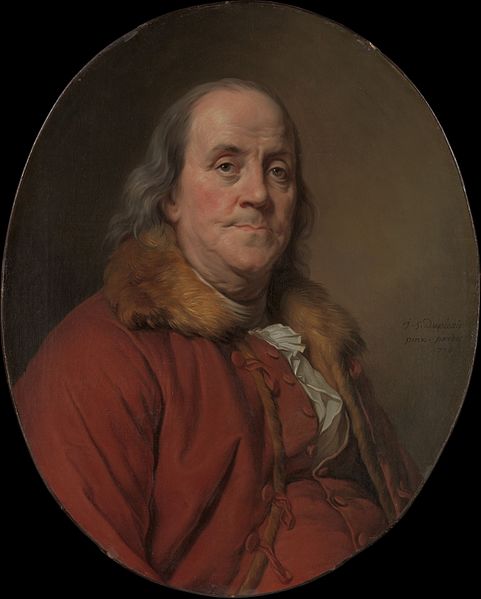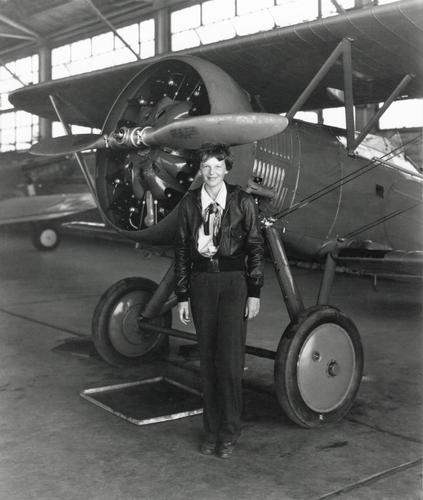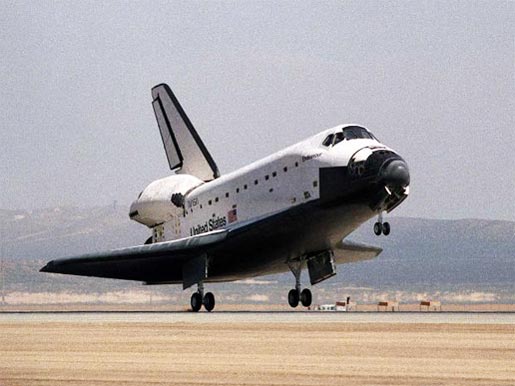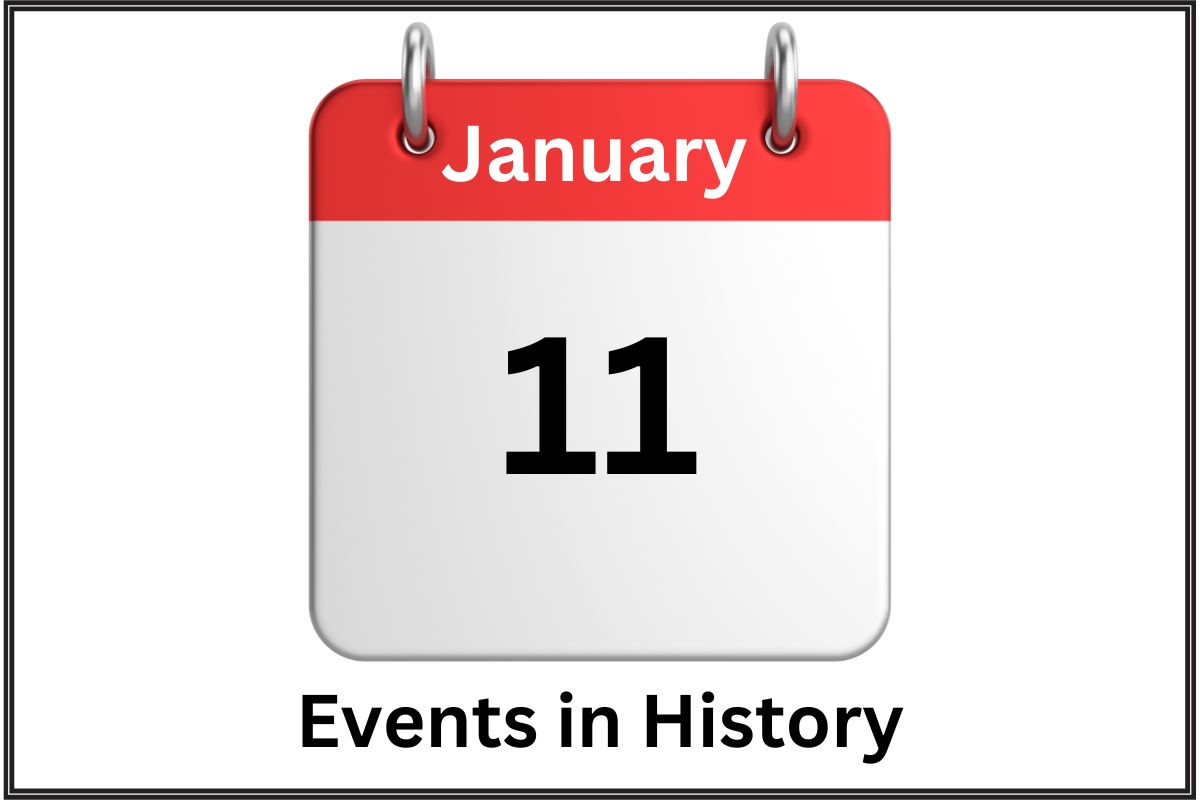In this article, we delve into the significance of January 11 throughout history, exploring a diverse array of events that have shaped politics, science, culture, and society globally.
From the crowning of a Byzantine empress and the first recorded lottery in England, to groundbreaking advancements in medical science and pivotal moments in world wars, January 11 stands as a witness to milestones that have left indelible marks on the world’s tapestry.
Each event, whether it be the declaration of new nations, revolutionary scientific achievements, or the birth of movements that challenge the status quo, reflects the multifaceted nature of human progress and struggle. Join us as we traverse through time, uncovering the stories and legacies of January 11.
January 11th Events in History
1055 – Theodora is crowned Empress of the Byzantine Empire
Theodora was crowned Empress of the Byzantine Empire on January 11, 1055. She was a senior empress of the Byzantine Empire and the wife of Emperor Constantine IX Monomachos.
Her reign is noted for the revitalization of the Byzantine Empire’s fortunes and a significant period of internal stability.
Also Read: January 10 – On this Day in History
Theodora was one of the few women to rule the Byzantine Empire in her own right, a testament to her political acumen and capability in an era when female rulers were rare.

1569 – First recorded lottery in England is drawn in St. Paul’s Cathedral, London
The first recorded lottery in England was held on January 11, 1569. It took place in St. Paul’s Cathedral, London.
This lottery was authorized by Queen Elizabeth I, who established it as a means to raise funds for “the reparation of the havens and strength of the Realme, and towards such other publique good workes.”
Tickets were sold and prizes consisted of money, plate, and tapestries. This event marked the beginning of state-sponsored lotteries in England.
1571 – Austrian nobility is granted freedom of religion
On January 11, 1571, the Austrian nobility was granted freedom of religion, a significant step in the complex religious landscape of the Holy Roman Empire during the Reformation.
Also Read: January 12th Events in History
This decree allowed members of the nobility to choose their faith, a right that was highly unusual in a time when rulers often imposed their own religious beliefs on their subjects.
This move towards religious tolerance reflected the broader shifts within the empire towards acknowledging and accommodating the diverse faiths of its populace.
1693 – Mt. Etna in Sicily erupts, causing significant damage and fatalities
On January 11, 1693, Mt. Etna, one of the most active volcanoes in the world located on the east coast of Sicily, Italy, erupted violently. This eruption was part of a series of catastrophic events that year, including earthquakes that struck the region.
The eruption and accompanying seismic activity caused extensive damage to the surrounding areas and resulted in numerous fatalities. The 1693 eruption of Mt. Etna is one of the deadliest in its recorded history, highlighting the volatile nature of this massive geological feature.
1759 – The first American life insurance company is incorporated in Philadelphia
The first American life insurance company, known as The Corporation for Relief of Poor and Distressed Widows and Children of Presbyterian Ministers, was incorporated on January 11, 1759, in Philadelphia, Pennsylvania.
This pioneering institution was founded by Benjamin Franklin and others, signifying the beginning of organized financial security measures for families facing the loss of a breadwinner.
The establishment of this company marked a significant development in American financial services, providing a model for the life insurance industry that would grow substantially over the following centuries.

1775 – Francis Salvador becomes the first Jew elected to an American governing body in South Carolina
On January 11, 1775, Francis Salvador, a member of a prominent Jewish family that had immigrated to the British colony of South Carolina from London, made history by becoming the first Jew elected to an American governing body.
Salvador was elected to the Provincial Congress of South Carolina, marking a significant moment in American history as it reflected the growing acceptance and integration of Jewish individuals into the political and social fabric of the emerging nation.
His election was notable not just for his faith but also for his active participation in the cause for American independence.
1787 – William Herschel discovers Titania and Oberon, two moons of Uranus
Astronomer William Herschel discovered Titania and Oberon, two of the moons of Uranus, on January 11, 1787. Herschel, who had previously discovered the planet Uranus itself in 1781, continued his observations of the night sky, leading to the identification of its first two moons.
These discoveries were groundbreaking at the time and significantly contributed to the field of astronomy by expanding human knowledge of the solar system.
Titania and Oberon remain subjects of interest for astronomers, as they offer insights into the characteristics and formation of celestial bodies in the outer solar system.
1805 – The Michigan Territory is created
The Michigan Territory was officially created on January 11, 1805, when President Thomas Jefferson signed an act of Congress. Before becoming its own territory, the region was part of the Indiana Territory.
The creation of the Michigan Territory was a pivotal moment in the westward expansion of the United States, setting the stage for future development, settlement, and statehood.
The establishment of the territory was crucial for organizing the governance, legal system, and infrastructure development in the area that would eventually become the State of Michigan.
1861 – Alabama secedes from the United States
On January 11, 1861, Alabama became the fourth state to secede from the Union, joining South Carolina, Mississippi, and Florida in the Confederacy, in the lead-up to the American Civil War.
This decision was part of a broader movement among Southern states in response to the election of Abraham Lincoln as President and the perceived threat to the institution of slavery and states’ rights.
Alabama’s secession played a significant role in the escalation of tensions that ultimately led to the outbreak of the Civil War.
1863 – American Civil War: Battle of Arkansas Post – Union forces under General John McClernand defeat Confederate troops
The Battle of Arkansas Post, also known as the Battle of Fort Hindman, took place from January 9 to 11, 1863, during the American Civil War.
Union forces under the command of General John A. McClernand attacked and defeated Confederate troops garrisoned at Fort Hindman, near the Arkansas Post on the Arkansas River.
This Union victory significantly disrupted Confederate control over the region, cutting off a key supply route and contributing to the Union’s strategic objectives of dividing the Confederacy and gaining control of the Mississippi River, a crucial artery for transport and supply during the war.

1879 – The Zulu War begins between the British Empire and the Zulu Kingdom
The Zulu War, also known as the Anglo-Zulu War, began on January 11, 1879, when the British Empire launched a military campaign against the Zulu Kingdom. The conflict arose from British imperial ambitions in Southern Africa and disputes over the borders and governance of the region.
The war is particularly noted for the Battle of Isandlwana, where the Zulus achieved a remarkable victory against British forces. However, the British eventually prevailed, resulting in the annexation of the Zulu Kingdom into the British colony of Natal.
This war is a significant part of both British and South African history, illustrating the impact of colonialism and the resistance of indigenous peoples.
1908 – Grand Canyon National Monument is created
On January 11, 1908, President Theodore Roosevelt declared the Grand Canyon a national monument, utilizing the Antiquities Act to preserve this natural wonder.
The Grand Canyon, known for its immense size and its intricate and colorful landscape, offers one of the most complete records of geological history in the world.
This designation was a significant step in the conservation movement in the United States, recognizing the importance of protecting natural sites of unique beauty and geological significance.
The Grand Canyon would later be designated as a National Park in 1919, further cementing its protection and status as a symbol of natural preservation.
1922 – Leonard Thompson is the first person to be treated with insulin
Leonard Thompson, a 14-year-old Canadian boy suffering from diabetes, became the first person to receive an injection of insulin as a treatment for the disease on January 11, 1922.
This landmark event took place at the Toronto General Hospital and marked the beginning of a new era in the treatment of diabetes. Prior to this, diabetes was essentially a death sentence.
The discovery of insulin by Frederick Banting, Charles Best, James Collip, and John Macleod represented a major breakthrough in medical science, transforming diabetes from a fatal condition to a manageable illness.
1935 – Amelia Earhart becomes the first person to fly solo from Hawaii to California
On January 11, 1935, Amelia Earhart achieved another milestone in aviation history by becoming the first person to fly solo from Honolulu, Hawaii, to Oakland, California.
This daring flight across the Pacific Ocean was fraught with danger, including turbulent weather and mechanical challenges, but Earhart’s skill and determination led her to successfully complete the journey.
This accomplishment added to Earhart’s growing legacy as one of the most famous aviators of her time, celebrated for her pioneering spirit and contributions to the field of aviation and women’s rights.

1942 – Japan declares war on the Netherlands and invades the Dutch East Indies
On January 11, 1942, during World War II, Japan declared war on the Netherlands and subsequently launched an invasion of the Dutch East Indies (modern-day Indonesia).
This strategic move was driven by Japan’s desire to secure access to the region’s vital oil reserves and other natural resources to fuel its war effort. The invasion led to a significant military campaign against Allied forces in Southeast Asia and the eventual Japanese occupation of the Dutch East Indies.
This period of occupation had a profound impact on the region, contributing to the eventual push for Indonesian independence from Dutch colonial rule following the end of World War II.
1946 – Enver Hoxha declares the People’s Republic of Albania with himself as dictator
On January 11, 1946, Enver Hoxha, a key figure in the Communist Party of Albania, declared the establishment of the People’s Republic of Albania, positioning himself as the country’s leader and eventually its dictator.
This declaration marked the beginning of a strict and isolationist communist regime that would last for over four decades until the early 1990s.
Under Hoxha’s rule, Albania became one of the most isolated and Stalinist states in the world, with severe restrictions on personal freedoms, an intense cult of personality around Hoxha, and significant social and economic impacts that the country is still addressing today.
1964 – Surgeon General of the United States Luther Terry reports that smoking may be hazardous to health, the first such statement from the U.S. government
On January 11, 1964, Surgeon General Luther Terry made a groundbreaking announcement in the history of public health by officially reporting that smoking cigarettes may be hazardous to health. This report was the first of its kind from the U.S. government and laid the foundation for future public health campaigns against smoking.
It led to significant changes in public attitudes towards tobacco, the implementation of warning labels on cigarette packaging, and the establishment of anti-smoking laws and policies. The report’s findings were instrumental in raising awareness about the health risks associated with smoking, including lung cancer and heart disease.
1972 – East Pakistan renames itself Bangladesh
On January 11, 1972, following its independence from Pakistan after a brutal liberation war, East Pakistan officially renamed itself Bangladesh. This marked the culmination of a long struggle for autonomy and recognition, beginning with language riots in 1952 and escalating into a full-scale war of independence in 1971.
The declaration of independence and the subsequent establishment of Bangladesh as a sovereign nation represented a significant moment in the country’s history, symbolizing its break from Pakistani rule and the start of a new chapter as a separate nation with its own identity, culture, and aspirations.
1986 – The Gateway Bridge, Brisbane in Queensland, Australia is officially opened
The Gateway Bridge in Brisbane, Queensland, Australia, was officially opened on January 11, 1986. This significant infrastructure project spans the Brisbane River and was designed to alleviate traffic congestion in the city’s central areas, improving connectivity between the northern and southern suburbs.
The bridge is a key component of the Gateway Motorway, playing a crucial role in Brisbane’s transportation network. Its construction was a major engineering achievement at the time and continues to be an iconic structure, facilitating economic growth and development in the region.

1996 – Space Shuttle Endeavour launches on the STS-72 mission
On January 11, 1996, the Space Shuttle Endeavour embarked on the STS-72 mission, marking another significant event in the history of space exploration.
The mission’s objectives included the retrieval of two satellites that had been previously placed into orbit, the Japanese Space Flyer Unit (SFU) and the United States OAST-Flyer. The mission also involved several spacewalks to test hardware for the assembly of the International Space Station (ISS).
The successful completion of the STS-72 mission showcased the capabilities of the Space Shuttle program and contributed valuable knowledge and experience to future space station assembly and maintenance tasks.
